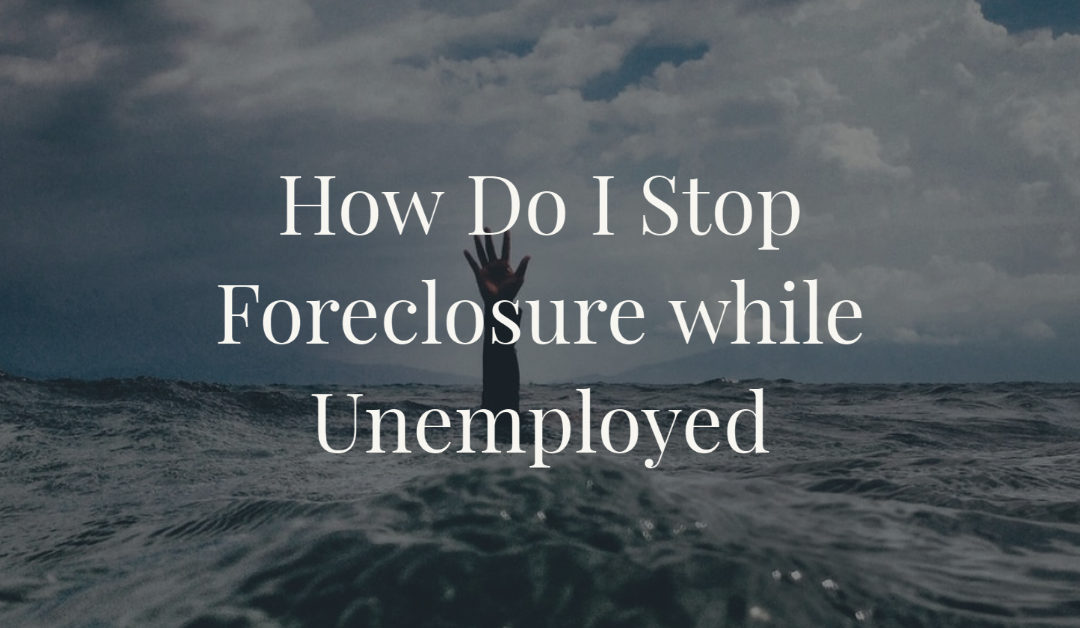If you are unemployed and facing foreclosure in Texas, you may feel stressed and like you are in over your head. Even if you have only missed one payment, it can seem like you will never be able to catch up financially.
You may be unemployed because of the pandemic or it may be a result of the economic instability in our country. Whatever the reason, there are solutions to the difficulties you are facing.
The good news is that there are legal ways to stay in your home while preventing the foreclosure. There are solutions to avoid foreclosure while keeping your credit solid. Read on to learn what some of your options are.
Stay in Your Home with Government Programs
If you want to stay in your home, federal and state government programs can help. Under the Coronavirus Aid, Relief, and Economic Security (CARES) Act, there are two protections for homeowners with federally or GSE-backed mortgages. You must contact your lender to apply for these relief options.
No Foreclosure Allowed
For Federal loans, your lender or loan servicer may not foreclose on you until at least December 31, 2020. Second, if you experience financial hardship due to the coronavirus pandemic,
Forbearance
Forbearance is when your mortgage servicer or lender allows you to stop paying your monthly mortgage payments for a period of time. You can request a forbearance for up to 180 days and an extension for up to another 180 days. The lender may not charge additional fees, penalties or additional interest and you don’t have to submit additional documentation to qualify other than your claim to have a pandemic-related financial hardship.
The monthly payments and all interest that is accrued along with scheduled fees still have to be paid eventually, but usually the lender will let you pay back the amount owed over time or at the end of your entire loan period. If you have a Fannie Mae, Freddie Mac, FHA, VA, or USDA loan, you won’t have to pay back the amount that was suspended all at once—unless you are able to do so.
If you become employed again, you can always talk to your lender about reinstating your mortgage payments and settling the extra payments you missed. To learn more, check out the Consumer Finance Bureau
Reverse Mortgage
Reverse mortgages are a type of FHA loan that lets homeowners 62 years of age or older borrow against the equity in their home to receive a lump sum cash payment, monthly payments or a line of credit. Read Reverse Mortgages to see if you would qualify.
Get a Federal Loan
Consider a federal loan for your business or education or housing so that you can pay your mortgage. Check the site GovLoans.gov that directs you to information on loans for agriculture, business, disaster relief, education, housing, and for veterans and also has it’s own pre-screening tool and application process.
You can also see available programs that you might qualify for to help you pay other expenses at Benefits.gov
Stay in Your Home with Lender Programs
You can also stay in your home using programs offered by your lender due to the current pandemic situation. To take advantage of these programs, call your lender and let them know that you are behind on payments due to the covid pandemic. Ask what programs they have available for you and see which solution works best in your situation. Possibilities include:
-
Forbearance
This option temporarily suspends payments, letting you pay your payments at a later date. Once you receive a forbearance, get it in writing so that you and your lender are on the same page. The lender will not foreclose on you during a forbearance and A forbearance agreement provides short-term relief for borrowers. When you resume making payments, you will owe all of your missed payments, including principal, interest, taxes, and insurance. You can often add this amount to your total loan.
-
Repayment Plans:
Once you do get a job, a servicer might be willing to spread the owed amount over your future payments until you catch up on your loan.
-
Loan Modification
This is when the lender modifies your existing loan so that your payments are lower now. This can mean that the entire loan will actually cost you more in the end. However, when you are unemployed, this is definitely a more affordable option.
-
Refinance
If your house is worth more than what you owe on your loan, you have equity. This means that the lender might consider refinancing the loan for a lower amount with possibly a lower interest rate and different terms.
-
Partial Claim
If you have an FHA loan, you may be eligible for a Partial Claim. This is an interest-free loan designed to help homeowners reinstate a delinquent loan. This would be an additional loan to your original mortgage, and would be paid back either after the original mortgage is paid off or the property is sold.
Find Your Way
As you look for solutions, always consider talking with an attorney who specializes in real estate law and foreclosure situations. Whether you have missed one payment or are watching your house go on the auction block this week, a knowledgeable attorney will be able to advise you of the viable options that you have available to you.
Consult an Expert
An experienced and knowledgeable real estate attorney can help you find solutions no matter where you are in the process of foreclosure. Meeting with an attorney sooner rather than later yields the best results, but attorneys also work with those everyday who have waited until the last minute. If your bottom line is looking rock bottom, talk to your attorney now. Don’t wait until this becomes bigger than you can handle. Find your freedom from a crushing mortgage today.



Recent Comments